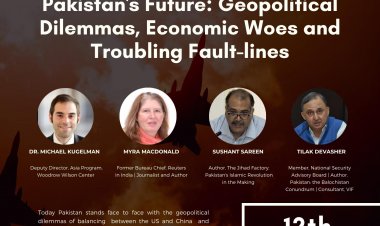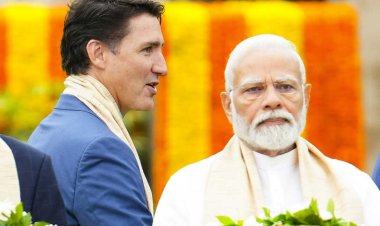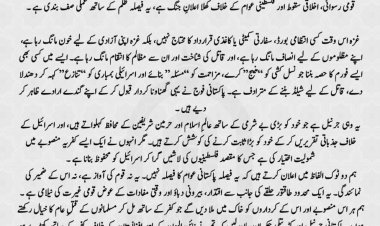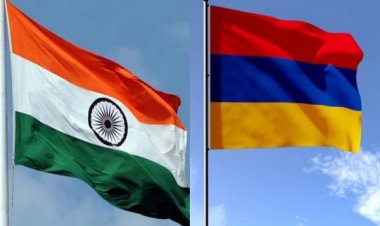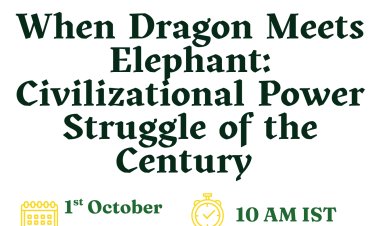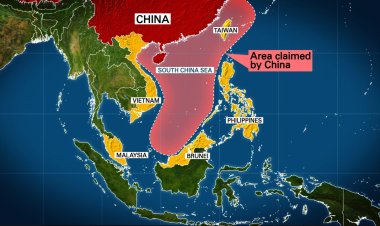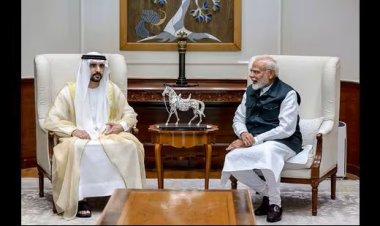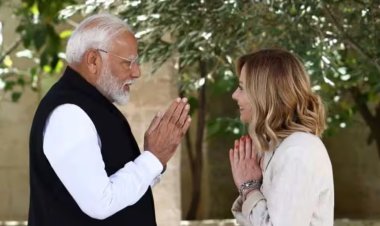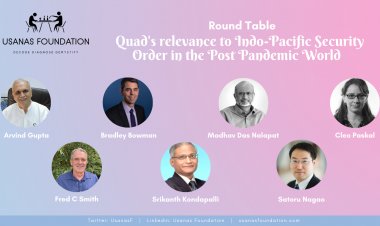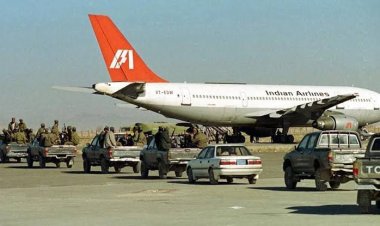Future of Afghanistan's Peace Process: Post-Moscow Summit
The success in achieving durable peace and stability in Afghanistan is dependent on the Taliban’s commitment to the rule of law, democracy and human rights.
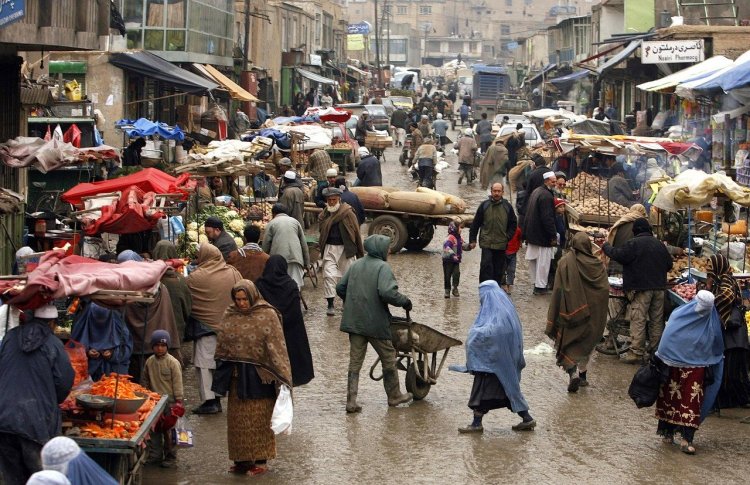
Analysis
By Dr. Nalin Mohapatra
Abstract
Ensuring Peace in Afghanistan is a desirable goal; however, it is challenging to achieve. This is partly because of the lack of commitment of the Taliban to the entire negotiation process. On the other hand, the present President of Ashraf Ghani is commanding support from all sections of the Afghan society. The forthcoming Heart of Asia Conference will take this into account. There is also a need to put sanctions by the international community on China and Pakistan for their nefarious role in patronising terrorism in Afghanistan. Russia should also change its posture towards the Taliban as it relies too much on it despite knowing its past credential. On the other hand, India, Central Asian countries, and the U.S. should cooperate to bring normalcy and assist Ashraf Ghani's moderate leadership to restore normalcy in Afghanistan.
Introduction
Four major geopolitical arches which are shaping the dynamics of Afghanistan are:-
a) The issue of withdrawal of troops from Afghanistan by the new Biden Administration;
b) Russia's pro-active role in the Afghan reconciliation process by showing a soft corner for its nemesis, the Taliban;
c) Role of both China and Pakistan in derailing the Peace Process in Afghanistan;
d) The desires on the part of the present Afghan official leadership under President Ashraf Ghani to rely on India to resolve the crisis. Some of these arches are shaping the dynamics of Afghan peace processes in the last few years.
In this regard, the four trajectories discussed above are also generating four major hypothetical questions regarding the Afghan peace process's future. These are:
- Will the Taliban abandon terrorism, which is one of the necessary conditions for ensuring peace in Afghanistan?
- Whether Is it proper and reasonable to engage a radical terrorist group Taliban in the Peace process?
- How far will Afghan people accept the Taliban in the political processes of the country?
- Whether American withdrawal of troops will accentuate the crisis in Afghanistan?
These four questions mentioned above, in fact, will answer the future of the Afghan Peace Process.
One critical question that needs to be addressed here is whether the Taliban, which has a record of engaging in terrorist activities, can reach a negotiation table as perceived. Of course, both the United States and Russia (two major external actors) think that the Taliban can be engaged in the political process. However, the idea is a misnomer. The track record, sofar, has not been encouraging. The Taliban, while negotiating the peace process, has not ceased its violent activities in Afghanistan. At the same time, external actors should realise that the Taliban is not representing Afghanistan's majority Pashtun community in its entirety.
On the other hand, there are moderate voices within the Pashtun community, like the elected President Ashraf Ghani, who represents the community. It may be underlined here that during the Doha round of negotiations between the U.S. government and the Taliban, which took place in February 2021, the latter was adamant about forming a theocratic "Islamic government." On the other hand, the current administration headed by Ashraf Ghani insists that a Presidential election will take place within "six months or a year." As reported, the Ghani government proposed the Peace Plan that allows the Taliban's participation in the government structure. These issues remain crucial before arriving at the conclusion of the Peace Process. On the other hand, Taliban spokesperson Zabihullah Mujahid stated that "Such processes (elections) had pushed the country to the verge of crisis in the past". This misperception between the present elected Afghan government and the Taliban will continue even in future also.
At the Moscow Peace talk with the Taliban, there was a consensus on "to reduce the level of violence in the country" and the Taliban assured not to declare a spring-summer offensive campaign". However, it is too early to believe in the Taliban's commitment to the Peace Process. One may underline here that by engaging with the Taliban, no doubt, Moscow returned to its old bastion and got the upper hand in the murkier geopolitics of Afghanistan, but in the long run, it may backfire. There are three lacunas that one can infer from the Moscow Peace negotiation conducted by the Russian government with Taliban. These are:
- Given its past credentials, Taliban is not a reliable partner in the Afghan Peace Process.
- It appears that Russia, by engaging itself in the Afghan Process may have larger geopolitical goals in South Asia.
- By engaging the Taliban, Russia is more interested in balancing the U.S. in Afghanistan rather than actually interested to resolve the crisis.
Though the Russian Foreign Minister Sergei Lavrov, in his opening remark at the meeting, outlined Russia's strategy in the Afghan crisis by stating that "Russia will continue to render versatile aid to Afghanistan, our friendly partner, and contributing to the measures aimed at putting an end to the long-standing armed conflict and establishing durable peace in that country.” Lavrov emphasised peace and stability in Afghanistan but hardly blamed Taliban for indulging in violence in Afghanistan. What one observes is that there is a growing pampering of the Taliban by Russia, thus alienating moderate voice. This, in the long-run may create a new problem for Afghan Peace Process.
One may add here that one major reason why Russia and other external powers like China and Pakistan are interested to prop up the terrorist group like the Taliban is that, as per a recent study, by Bill Roggio & Alexandra Gutowski titled “ Mapping Taliban Control in Afghanistan” highlight that Taliban controls around “ 75 districts” and it controls the population of “ 13,205,484 population” as the studies suggest. Keeping these facts in mind, both China and Pakistan are appeasing Taliban and bring it under their sphere of influence. As this will give them an upper hand to control the internal political situation of Afghanistan.
Like Russia, both China and Pakistan are also interested in dominating the space of Afghanistan politics. It may be recalled here that both China and Pakistan have geopolitical ambitions in Afghanistan, and both of them are using Taliban to achieve their own nefarious geopolitical intent. The U.N Security Council has also admitted that the Taliban is a terrorist organisation. As the “Eleventh report of the Analytical Support and Sanctions Monitoring Team submitted pursuant to resolution 2501 (2019) concerning the Taliban and other associated individuals and entities constituting a threat to the peace, stability, and security of Afghanistan” of “U.N Security Council, dated 20 May 2020” exposes the unholy nexus between “ al Qaida, Haqqani Network and the Taliban” and adds that “ relations between the Taliban, especially the Haqqani Network, and Al-Qaida remain close, based on friendship, a history of shared struggle, ideological sympathy, and intermarriage.”
The Security Council's above-mentioned report was also quoted by the United States Institute of Peace in a report titled A Pathway for Peace in Afghanistan. Their Study group, which includes Nisha Desai Biswal, former Assistant Secretary of State for South and Central Asian(U.S.), has also concurred with the U.N Security Council resolution on Taliban. While evaluating the evil role of Pakistan in generating instability in Afghanistan the report adds that “ Pakistan has adopted a policy that can loosely be described as preferring instability in Afghanistan to a stable Afghanistan that is allied to India”. ( p.40) Similarly the report also castigated China for its evil intents in Afghanistan . The report further adds that China’s basic policy is premised upon “ the chance for China to counteract India’s influence in Afghanistan”. (p. 41). The report also expresses grave concerns for the “ China-Pakistan relationship” in Afghanistan.(Ibid) In this regard it may be added that both China and Pakistan are working overtime to destabilise Afghanistan's situation. This may further aggravate the situation in Afghanistan.
Another important aspect that needs to be underlined here is that if the U.S. will withdraw troops in May 2021 as planned, what will happen to the peace and security of Afghanistan? In this regard, it can be underlined that the U.S. troops are providing comprehensive security in Afghanistan. The Afghan forces are also ill-equipped to handle the situation. That said, there is a need for continuing U.S. troops in Afghanistan. Even U.S. President Joe Biden has also stated that “It's going to be hard to meet the May 1 deadline”.
One major concern that needs to be highlighted here is Turkey's growing involvement in the Afghan situation. Even in the present Peace Negotiation, which took place in Moscow, Turkey was a participant. As reported, Afghan President Ashraf Ghani is also visiting Turkey in April 2021, where he will unveil his blueprint of the “Afghan Peace Process”. This move will have a deeper repercussion on the security situation of Afghanistan. In recent years Turkey under Erdogan is increasingly becoming a “Pariah State” and as argued by scholars, directly and indirectly, Erdogan regime is supporting terrorist activities. A recent study by Abdullah Bozkurt titled” Turkey protected Turkish al-Qaeda group that sent fighters, money to jihadist campaign in Afghanistan, Pakistan” and published by Nordic Centre highlights that “ Wiretaps and emails obtained from a suspect in a counterterrorism investigation into a government-backed Turkish jihadist group revealed how it was connected to al-Qaeda and the Taliban in Afghanistan and Pakistan.” The study further argues that “ The group[ Tahşiyeciler] escaped the grip of the criminal justice system in Turkey thanks to the intervention of the Islamist government of President Recep Tayyip Erdoğan, who publicly defended the group and secured the release of its members from prison.” Bozkurt states that “ aspiring jihadists were picked in Turkey by operatives of Tahşiyeciler and sent to fight in jihadist battles waged by al-Qaeda and the Taliban in Afghanistan and Pakistan”
Some of these above-mentioned narratives need to be studied in a broader framework while dealing with the question of Afghan peace, security, and stability in Afghanistan.
One interesting point that need to be highlighted here is that while negotiation at Moscow was going on Afghan issue, the Afghan Foreign Minister Mohammad Haneef Atmar visited India. The visit of Afghan Foreign Minister to India is a reflection of the fact that New Delhi can play a major role in resolving the Afghan impasse. As reported, Atmar in an interview of WION stated "India's role is critical to regional and international consensus.” He further observed that “India has legitimate interests in the peace and security of Afghanistan and we are seeking a greater role for India.” The Afghan Foreign Minister's visit is important as the ‘Heart of Asia’ Conferenc, which will take place in Dushanbe on 30 March 2021, will majorly focus on the Afghan peace process.
India’s External Affairs Minister S Jaishankar is also going to attend the Conference. It is in this context; one expects a bigger role for India in addressing the issues relating to Peace and Security in Afghanistan. It may be recalled here that India, Afghanistan, Central Asian countries, and the U.S. are sharing a common position about restoring normalcy in Afghanistan. India should highlight the following major concerns in the forthcoming Heart of Asia Conference :
- Taliban should renounce all forms of violence in Afghanistan.
- The Afghan people and its elected representatives (the present Ghani government) should play a crucial role in the key decisions of the peace process of Afghanistan.
- External patronage in the form of support extended by Pakistan and China to terrorist groups like Taliban, Haqqani network and the ISKP should be immediately stopped.
- All other ethnic communities like Tajik, Hazrara, Uzbek must get an opportunity in the peace process to highlight their position.
- There should be yearly monitoring of activities and commitment of Taliban to the peace process.
- Afghan women should adequately represent the policy-making processes in the post-peace Process Afghanistan
The success in achieving durable peace and stability is dependent on Taliban’s commitment to the rule of law, democracy and human rights. However, it does not seem likely soon; hence, it is too early to share power with the Taliban by the Ashraf Ghani government.
Dr. Mohapatra teaches at the School of International Studies, Jawaharlal Nehru University, New Delhi. He can be reached at nalin238@gmail.com
Disclaimer: This paper is the author’s individual scholastic contribution and does not reflect the organisation’s viewpoint.



